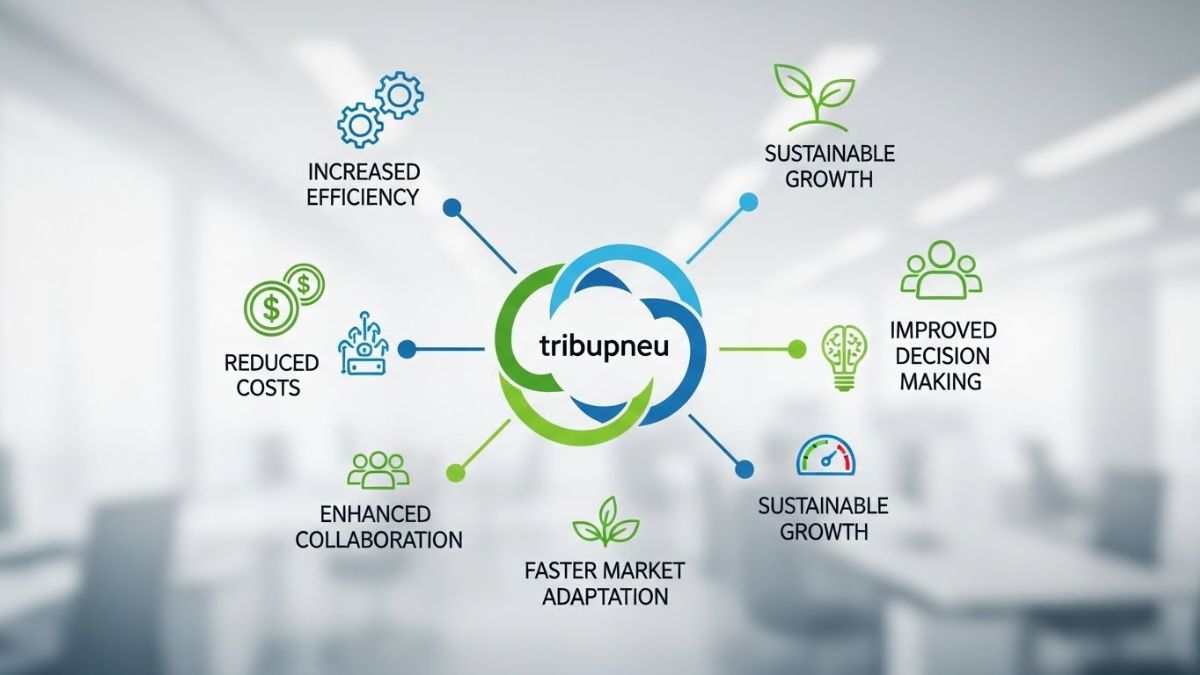How Outsourcing Tax Preparation Simplifies Compliance for Growing Businesses
Handling taxes can feel overwhelming, especially for growing businesses. Outsourcing tax preparation helps ensure compliance with ever-changing tax laws. This article explains how outsourcing simplifies tax filing while saving time and reducing costs.
Keep reading to learn how it works!
Why Outsource Tax Preparation?
Outsourcing tax preparation can save time and cut overhead costs for businesses. It allows access to skilled tax professionals who stay updated on changing tax laws.
Access to Expertise
Expert tax professionals understand complex tax laws, saving businesses from costly errors. Their specialized knowledge reduces the risk of audits and ensures compliance with updated regulations.
For growing companies, this expertise makes handling corporate income tax or multi-state filings much easier.
Staying compliant starts with expert guidance on ever-changing tax policies.
Certified public accounting firms use advanced tax software to streamline processes. Tools like predictive analytics help identify deductions or risks early. This ensures accurate federal tax filings and smooth returns during the busy tax season.
Cost Efficiency
Outsourcing tax preparation helps businesses save money. Hiring temporary staff or training in-house employees costs more. It lowers overhead by using skilled tax professionals without the need for a full-time team.
It also removes recruitment and training expenses. Companies avoid large payroll management costs during tax season. This approach offers better return on investment (ROI) while reducing operational expenses like software and employee benefits.
Focus on Core Business Functions
Shifting tax preparation tasks frees your team to focus on revenue-generating activities. CPAs can provide strategic financial advice instead of handling routine tax filings.
Businesses can reallocate resources toward growth and innovation. For example, small businesses may use saved time for improving products or expanding services. This approach boosts operational efficiency and helps achieve goals faster.
Streamlining Compliance through Outsourcing
Outsourcing tax preparation helps keep tax filings correct and on time. It also ensures businesses meet changing rules with less effort.
Ensuring Accurate Tax Filings
Accurate tax filings lower audit risks and prevent penalties. Tax preparation services use advanced tax software, like cloud computing systems, to double-check forms such as Form 1040.
These tools reduce errors by up to 90%, ensuring compliance with federal tax policies and corporate tax laws.
Professional tax preparers review all financial data closely. They verify deductions, payroll management records, and other sensitive information for accuracy. Strong authentication methods, including encryption or biometrics, protect this data during reviews.
“Precision is key; small errors can lead to big problems,” say many CPA firms experienced in managing complex returns.
Adapting to Regulatory Changes
Tax laws change often, making compliance tricky for businesses. Outsourcing tax preparation helps companies stay updated with new tax regulations. Professional tax preparers use advanced tax software to track changes in federal tax policies and multi-state rules.
Businesses can avoid non-compliance fines and reduce the risk of audits this way. For example, a 2022 report showed that over 60% of small businesses failed to meet evolving state requirements without expert help.
Outsourced services provide early consultations to address changes promptly. Tax professionals plan around updates, ensuring accurate filings and timely adjustments. This approach improves operational efficiency while lowering stress during tax season.
Companies also save on recruitment costs by not hiring in-house experts every year. With reliable expertise, they handle complex reports like payroll management or S corporation taxes effortlessly.
Managing Multi-State Tax Requirements
Tax preparation across multiple states can get tricky. Different states have unique tax laws, rates, and filing deadlines. Businesses must comply with these rules to avoid penalties.
A solid understanding of U.S. tax laws is essential for accurate filings.
Outsourcing helps ensure compliance in all states where a business operates. Tax professionals handle multi-state returns and know local deductions or credits that may apply. They stay updated on changes, reducing the risk of audits or errors during tax season.
Benefits of Tax Preparation Outsourcing
Outsourcing tax preparation saves time, cuts costs, and boosts accuracy—read more to see how it can help your business thrive.
Enhanced Accuracy and Reduced Errors
Tax laws are complex and change often. Skilled tax professionals ensure precise handling of tax returns, lowering risks of mistakes. They use advanced tax software to check forms and calculations, reducing errors in filings.
Reliable providers also follow strict rules to protect private data. This lowers the chance of fraudulent activities or audits while improving compliance with updated regulations. Accurate filings save time and avoid penalties for growing businesses.
Time Savings
Outsourcing tax preparation frees up valuable hours for CPAs and business owners. Instead of drowning in tax forms, they can focus on strategic areas like financial planning or client relationships.
This approach allows firms to use advanced tax software and professional teams to handle tedious tasks quickly.
Early engagement with outsourcing services ensures a smoother process before peak tax season begins. Businesses avoid delays during the rush, cutting time spent correcting errors or managing last-minute filings.
This extra efficiency boosts operational success while reducing stress during federal or multi-state filings.
Scalability During Peak Seasons
Tax season increases workloads for businesses. Resources must scale quickly to meet demands. Tax preparation outsourcing solves this with ease. Teams expand based on your needs, ensuring no delays in tax filing or compliance.
Early planning with partners ensures smooth operations during busy times.
Hiring and training in-house can be costly and slow during peak periods. Professional tax preparers use advanced tools like big data analysis and accounting software to handle spikes efficiently.
Businesses save time and reduce errors while maintaining focus on core tasks.
Selecting the Right Outsourcing Partner
Choosing the right partner can make or break your tax preparation process. A good fit ensures smoother operations and reduces compliance risks.
Credibility and Experience
Select providers with CPA or EA credentials. These qualifications show they meet top standards in tax preparation. Check reviews on Trustpilot and Better Business Bureau for proof of good service.
Strong experience matters for accurate tax filing. Look for firms with a track record in managing complex tax laws and planning. Reliable vendors reduce risks like audits or reporting mistakes, keeping your business safe.
Understanding of Your Business Sector
Outsourcing partners must know your industry. A retail business has different tax filing needs than a tech company. Understanding federal tax policies and sector-specific tax laws is crucial.
CPA firms with experience in sectors like small businesses or s corporations can save time and reduce errors.
Providers offering customized tax compliance solutions can handle unique challenges, like state regulations or payroll management in specific fields. Evaluating their expertise ensures better personalization of services, reducing risks of audits or missed deductions.
Strong Communication Channels
Clear communication ensures smooth tax preparation. Establish secure channels for sharing data to protect privacy and meet compliance needs. Use advanced tools like encrypted emails or platforms with cryptography for added data security.
Real-time access to shared files helps avoid delays during tax season.
Frequent updates between your team and outsourcing partners improve accuracy in tax filings. Hosting regular reviews keeps all tasks aligned with federal tax policies and deadlines.
Strong collaboration reduces the risk of audits while meeting key performance indicators (KPIs).
Implementing Outsourcing in Your Business
Start small to integrate outsourcing into your current process. Use clear steps and advanced tax software for smooth collaboration.
Transition Strategy
Build a clear plan with your outsourcing partner early. Early engagement reduces errors in tax return preparation and limits the risk of audits. Define roles, responsibilities, and compliance timelines upfront to avoid confusion.
Use tax professionals with specialized knowledge for smoother transitions.
Review all tax documents thoroughly before handing them over. This step ensures accuracy in filings and better adherence to federal tax policies. Detailed agreements should include deadlines, data security measures, and expectations for audit support.
Proper planning saves time during peak seasons like the tax season.
Integration with Existing Processes
Syncing tax preparation outsourcing with your current workflow boosts efficiency. Advanced tax software can merge with payroll management and financial reporting tools. This reduces manual tasks and errors in tax filings.
Use a clear transition strategy to align processes smoothly. Regular consultations help match outsourced services to existing needs. Quality control checks ensure compliance with federal tax policies and tax laws without disrupting operations.
Continuous Monitoring and Feedback
Tax professionals check data security regularly to protect sensitive information. Continuous monitoring reduces risks like breaches or errors during tax filing.
Giving regular feedback ensures high accuracy in tax reporting and filings. Teams review processes often before submitting returns, meeting all federal tax policies and regulations effectively.
Overcoming Challenges in Tax Outsourcing
Overcoming challenges like data protection and quality control ensures smoother tax outsourcing—read on to learn key solutions!
Data Security
Data protection is crucial for outsourcing tax preparation. Reliable providers use strict measures to keep financial data safe. Many follow U.S. tax laws and global privacy rules, such as GDPR or HIPAA, to protect sensitive information.
Agreements should clearly outline security steps, like encryption and restricted access.
Companies must choose partners who prioritize risk reduction. Using advanced tools like blockchain or artificial intelligence helps secure data during transfer and storage. Strong policies ensure compliance with federal tax regulations while avoiding breaches that could lead to expensive fines or audits.
Ensuring Continuity and Quality
Strong communication keeps work on track. Regular feedback improves tax preparation accuracy. Continuous monitoring ensures compliance with federal tax policies. Frequent reviews reduce errors in tax filing and reporting.
Protect data security to avoid breaches during transitions. Use advanced tax software for consistent results across tasks. Keeping processes aligned prevents delays in meeting tax obligations.
Compliance with International Standards
Providers must follow global rules like GDPR and HIPAA for data security. These ensure tax preparation aligns with privacy laws, protecting sensitive client data during processing.
Draft agreements should define roles and compliance duties clearly. Vet outsourcing partners closely to confirm they meet international tax regulations before signing contracts.
Conclusion
Outsourcing tax preparation makes running a growing business easier. It saves time, cuts costs, and ensures accurate filings. Expert help keeps businesses in line with tax laws while reducing errors or risks.
With the right partner, companies can focus more on growth and less on taxes. This smart move boosts efficiency and simplifies compliance every step of the way.















